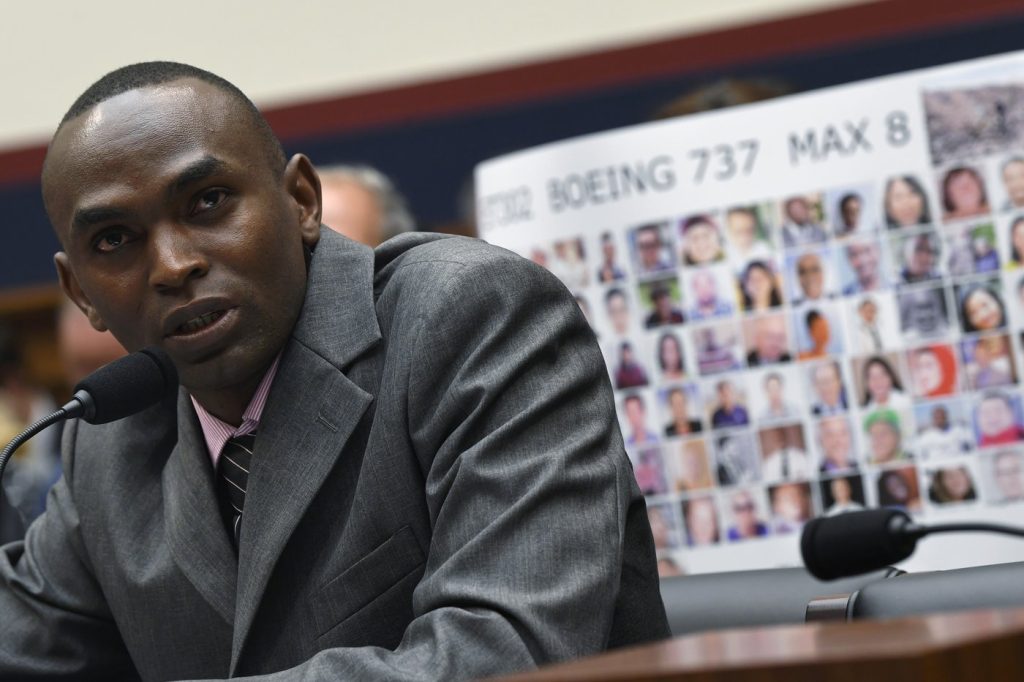Boeing has reached a settlement with Paul Njoroge, a Canadian man who lost his wife and three children in the tragic Ethiopian Airlines Flight 302 crash in March 2019. This settlement was finalized just days before a jury trial was scheduled to begin in Chicago's federal court, which would have determined the damages for Njoroge, who was planning to testify about the profound emotional impact of the crash on his life.
The crash, which occurred shortly after takeoff from Addis Ababa Bole International Airport, resulted in the death of all 157 people on board, including Njoroge's family, who were traveling to Kenya. Njoroge, now 41, has described the pain of his loss, stating that he cannot return to Toronto due to the distressing memories associated with his home, and he has struggled to find employment since the tragedy. Furthermore, he has faced criticism from relatives for not traveling with his family on that fatal flight.
Clifford, Njoroge’s attorney, highlighted the emotional turmoil his client has endured, stating, "He’s got complicated grief and sorrow and his own emotional stress. He’s haunted by nightmares and the loss of his wife and children." The specific terms of the settlement have not been disclosed. Njoroge had expressed intentions to seek "millions" in damages but did not reveal an exact figure before the trial.
Boeing has been dealing with ongoing scrutiny and legal issues following two deadly crashes involving its 737 Max airplanes, which included the 2019 Ethiopian Airlines crash and another incident in Indonesia in 2018. These crashes raised serious concerns about the aircraft's aerodynamic systems, specifically a faulty sensor that prompted pilots' inability to control the planes effectively. After the Ethiopian crash, the Max jets were grounded globally until Boeing made necessary system redesigns.
In 2021, Boeing accepted responsibility for the Ethiopian crash in an agreement that allowed victims' families to pursue individual claims in U.S. courts. This agreement has facilitated settlements with other families affected by the disaster, although the terms of these settlements remain confidential.
Among the tragic fatalities in the Ethiopian Airlines crash were Njoroge's wife, Carolyne, and their three young children: Ryan (6), Kellie (4), and Rubi (9 months), the youngest victim on board. Njoroge’s mother-in-law also perished in the crash and her family has a separate ongoing case.
Prior to the settlement, Njoroge had testified before Congress about the horrific thoughts that haunted him regarding the last moments of his family's flight. He vividly imagines his wife struggling to protect their infant while trying to manage their other children during the six minutes of despair before the aircraft crashed. Njoroge remarked, "I stay up nights thinking of the horror that they must have endured. The six minutes will forever be embedded in my mind. I was not there to help them. I couldn’t save them."
The unfortunate incident involved a jetliner that crashed into a barren area shortly after its departure to Nairobi. Investigators attributed the crashes of the Ethiopian Airlines flight and the previous Indonesian flight to a malfunctioning system that relied on incorrect readings from a sensor, pushing the aircraft nose-down and leaving the pilots powerless to regain control. Following these events, Boeing has faced numerous challenges and legal repercussions arising from the couple of crashes that resulted in a total of 346 fatalities, encompassing passengers and crew members.












